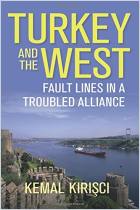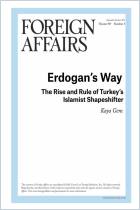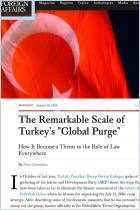加入 getAbstract 阅读摘要

加入 getAbstract 阅读摘要
Kemal Kirisci
Turkey and the West
Fault Lines in a Troubled Alliance
Brookings Institution Press, 2017
看看什么内容?
Turkey once seemed poised to become a Western-style democracy. No longer.
Recommendation
Only a decade ago, Turkey seemed an oasis of tranquility and Western-style liberalism in the Middle East. No longer. These days, under Recep Tayyip Erdoğan, Turkey is as a belligerent force, and certainly no friend of Western values. Erdoğan could change, writes Turkey expert Kemal Kirişci, but such a dramatic about-face seems unlikely. In this study – written before the election of June 2018, which saw Erdoğan win another five-year term – Kirişci laments Turkey’s turn toward authoritarianism as a missed opportunity. The Untied States and the European Union were tantalizingly close to having a like-minded ally in the Middle East, a secular Muslim nation that could show the rest of the region how to run a democracy and a free-market economy. Alas, Kirişci writes, that dream now seems farfetched. Erdoğan has cracked down on Kurds, journalists and other foes, and anti-Western conspiracy theories circulate widely. getAbstract recommends this study to readers seeking insight into Turkey’s politics and the rise of populist nationalism.
Summary
About the Author
Kemal Kirişci is a senior fellow and director of the Center on the United States and Europe’s Turkey Project at Brookings, where he focuses on Turkish foreign policy and migration studies.


















Comment on this summary